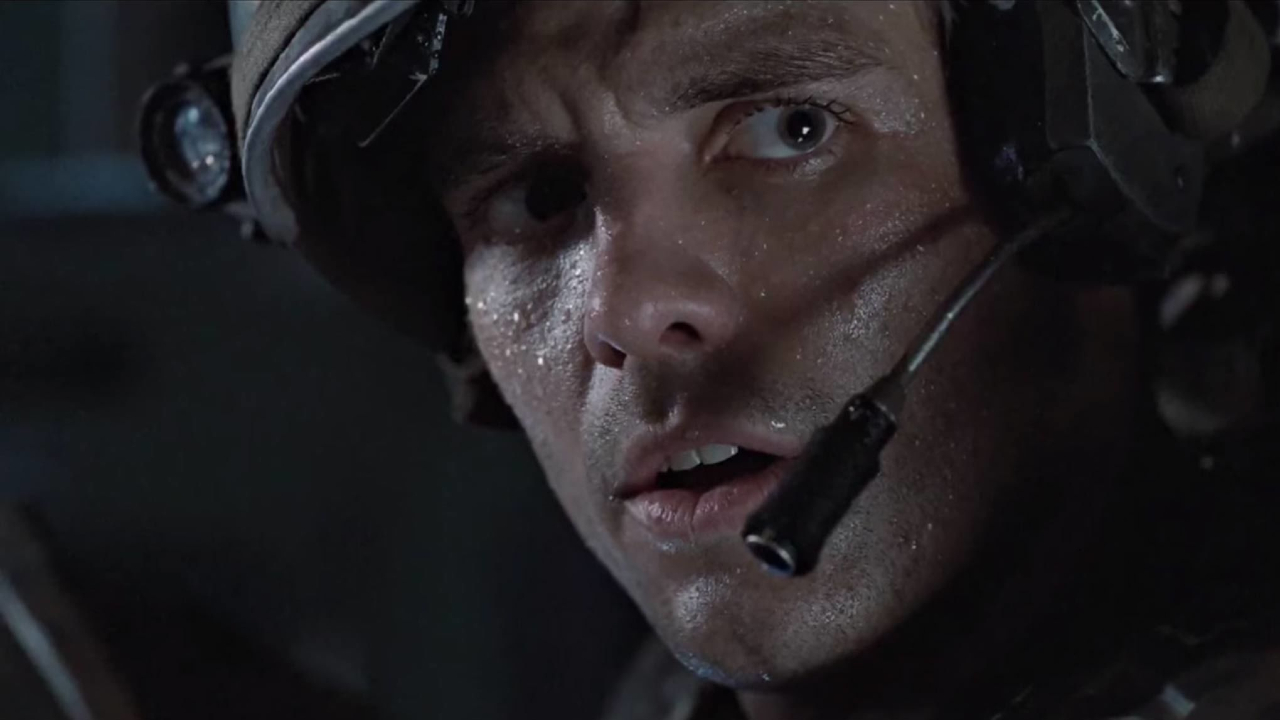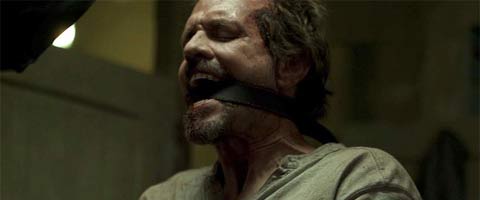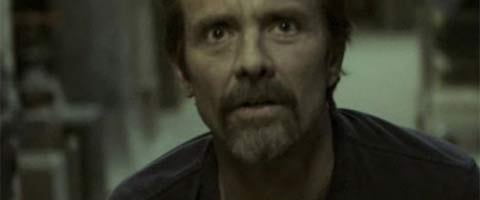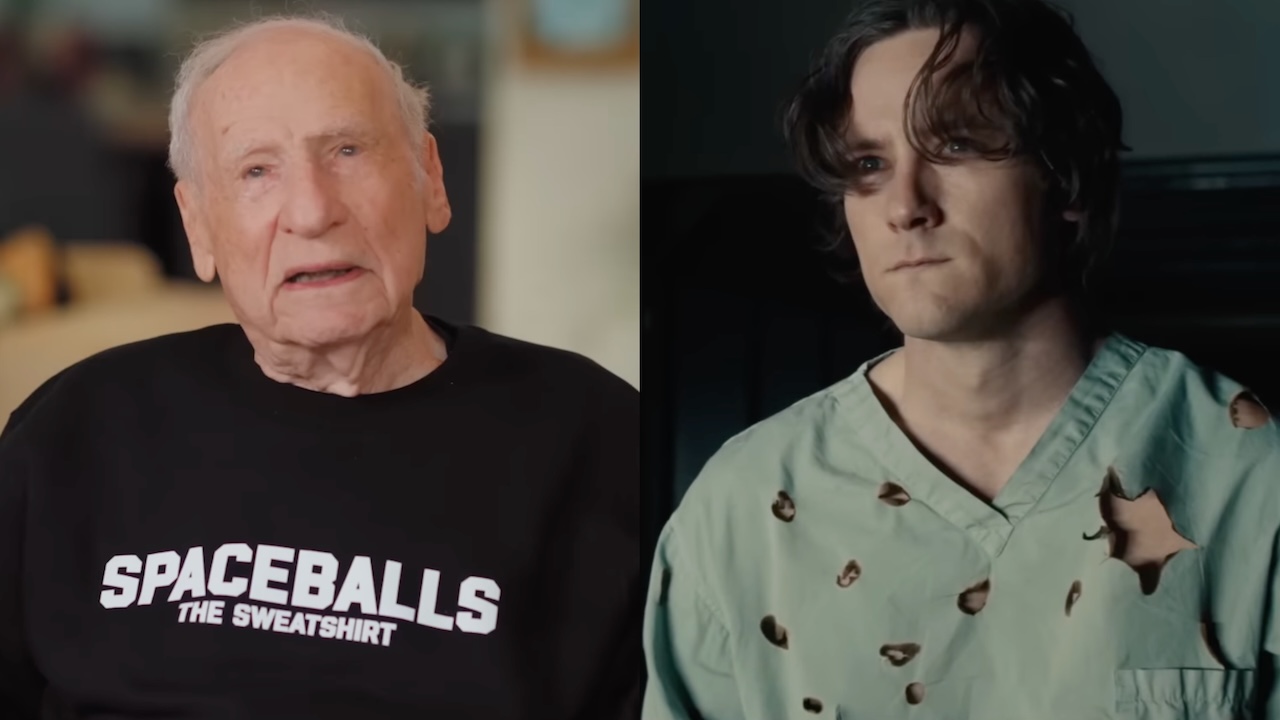Michael Biehn Talks About The Harsh Environment On The Set Of The Divide

When you ask most actors what their experience was like on a movie set, 99% of the time they’ll respond by telling you about how much everyone got along, how easy-going the director was, and how they all hung out together after a day of shooting. According to Michael Biehn, however, that wasn’t the case on the set of Xavier Gens’ The Divide. Apparently the key on that set was stopping yourself from punching the other cast members in the face.
With The Divide coming out this week, I recently had the chance to sit down with Michael Biehn one-on-one to talk about his experience making the apocalyptic thriller. Check out our chat below, in which the veteran actor talks about totally rewriting his character, the stress that existed between the ensemble cast, and why we may never see him in another Terminator movie.
When it comes to your character in this film, we learn a bit about his past through old photographs, like the fact that he was a firefighter and had a wife and daughter, but there’s not big exposition scene where he explains what happened to him and how he became so disgruntled and hateful. Did you fill in those blanks during your preparation process?
Yes. What happened was is that Xavier basically sent a script and I saw the character and was like, “Okay, would you mind if I make some changes?” I didn’t want to push too hard cause I had the offer and I didn’t know Xavier. And Xavier basically said, “Well, you can do anything you want. I don’t care. Come here, come play with me.” It’s basically what he said. So when we got there we all found out as actors that we could all do improve, we could do improvs during takes, and that we could write scenes and create characters the way we wanted to create the characters. So Mickey that you see on film… I don’t think there’s one line that’s the same. I wrote that character along with Eron Sheean. Eron was a writer who kind of helped all actors in case they wanted to change their characters, and Eron would help me. He helped me about half… about a quarter of the way through the movie. Finally I would send him something and he would send it back and I’d say, “Do this!” And he finally said, “Michael, write it yourself.” So I basically created the character and the backstory and all that stuff myself, which was a lot of fun.
Was he radically different in the original script?
Yeah, totally different. Basically, the Mickey that was in the original script was the antagonist, he was the bad guy, he got it in the end. He was a racist, nasty, selfish, paranoid guy and he had no redeeming values whatsoever. And so we took him and we gave him a backstory of 9/11 and the fact that he was a first responder. “Why is this guy like this?” Well, this is why. We came up with the idea, Eron and I came up with the idea that he was a first responder, he went into one of the buildings with his guys and when the buildings came down he was the only thing left standing. So he ends up with post-traumatic stress disorder, just like a lot of guys coming back from the war now. He just fucking can’t take it. He goes fucking crazy, starts drinking, loses his marriage, loses his job, ends up being paranoid and being a racist, and being paranoid about what happened. You can understand it, all of a sudden he’s building a bunker and he’s ready if it’s going to happen again. He’s not too happy with what he refers to as “ragheads.”

SPOILER ALERT
Your Daily Blend of Entertainment News
Because of the way that the film shifts, Mickey is seen as the common enemy at the start of the story, but as the story moves we begin to get a different perspective on him. I’m curious if you think that Mickey actually undergoes a change in the story or if it’s just the way we seem him because of how events play out.
I think it’s both. I think we set him up for the audience to think he is one way. We wanted the audience to think he was one way and we basically wanted to turn the audience around and go, “You know what…” At the end of the movie, my feeling was like putting the firecoat on the other guy…when I was looking up at [the picture of my wife], the sense for Mickey was that he was happy. He was happy that he was going out the same way that his boys went out. He was able to help somebody else out, he got her out, and he was happy to go out in a fire just like the way his guys went out. We played around with it. I can’t say that we knew we had that at the beginning because a lot of this stuff didn’t even happen. Jen [Blanc, his wife] showed up on set and Xavier and her got on really well and all of a sudden Xavier was like, “Put her up!” We already had the pictures up, but then he got to know her and he said, “Let’s shoot the scene.” That helps humanize him too.
END OF SPOILERS
This entire film is set in one location, which is this underground bunker. During production, does that kind of thing end up wearing on you?
It was very wearing because, basically, the actors hated each other so much. Because there was so much improving going on that people were taking… people would come in and think that they had their day of work, and they would have this scene, and then all of a sudden somebody else would be doing something more interesting and the camera would go over there. And that person would be pissed off at this person. There were a lot of divisions on that set. And I’ve worked with [William] Friedkin and I’ve worked with Jim Cameron and I’ve worked with Michael Bay, and there was more tension on this set than any other set that I’ve ever been on. The ones that were the true guys and girls that really wanted to hang stayed on the set. They didn’t wash, they lost weight, they didn’t brush their teeth, they didn’t go to their trailers in between shots. They stayed on the set in between sets. And then there was the group that didn’t. And there was a lot of division and a lot of hard feelings between the actors.
There is so much animosity between the characters in the film as well. Would you say that part of it was that the movie itself was leaking into the relationship between the actors?
Well, yeah. But I think it was Xavier being the puppetmaster behind the wheels, trying to piss off this person, piss off that person. Taking a scene away and then all of a sudden… and I think that he was trying to get the actors to go after each other and they took the bait – all the way to the point that they would get back to the…people always used to say to me, “Isn’t it hard to put the character down when you go home to your family?” Fuck no! It’s acting, it’s nothing. But in this movie, these people come back to the hotel and they’re like, “Fuck that motherfucker. I’ll fucking kill him. I’ll knock his fucking teeth out.” There were some angry people on that set.

With that kind of atmosphere, how important is it just to trust the director?
Well, I think trusting a director is important if he’s telling you to do things. But basically Xavier was saying, “Do what you want! You do anything you want, let me film it! The more interesting you make it the more I put you on my film. The more interesting you are, the more you’re going to be in my movie.” So the most trusting director I’ve ever worked with is Xavier Gens. He didn’t care what the dialogue was. He didn’t say, “You have to say this dialogue, you have to stand here, you have to wear this wardrobe, this person has to be cast.” He didn’t say anything like that. He said, “Do whatever you want.” So this was a situation, which was an actor’s dream, and we all knew it. We all knew that we were working on a movie…Rosanna [Arquette] is just… and you see Lauren [German], Rosanna, Michael [Eklund] is brilliant in it. Everybody is just like… I think that it’s such a great ensemble. I think it’s the best ensemble that I’ve ever worked with.
I know I have to wrap up, but there was a story that came out last year that said that the next Terminator movie could try and bring back the cast from the original. I don’t know if that’s still something that they are trying to work out, but is that something that you would be interested in?
You know what? There was Terminator 1, and there was Terminator 2. That was Jim Cameron. Everything after that is fucking garbage. If Jim’s not involved, I’m not involved and I don’t think Linda [Hamilton] would be either, or Arnold [Schwarzenegger]. I don’t think any of us want to go work for McB or McG or whatever his name is – in a Terminator movie. I would do another movie with him.

Eric Eisenberg is the Assistant Managing Editor at CinemaBlend. After graduating Boston University and earning a bachelor’s degree in journalism, he took a part-time job as a staff writer for CinemaBlend, and after six months was offered the opportunity to move to Los Angeles and take on a newly created West Coast Editor position. Over a decade later, he's continuing to advance his interests and expertise. In addition to conducting filmmaker interviews and contributing to the news and feature content of the site, Eric also oversees the Movie Reviews section, writes the the weekend box office report (published Sundays), and is the site's resident Stephen King expert. He has two King-related columns.
